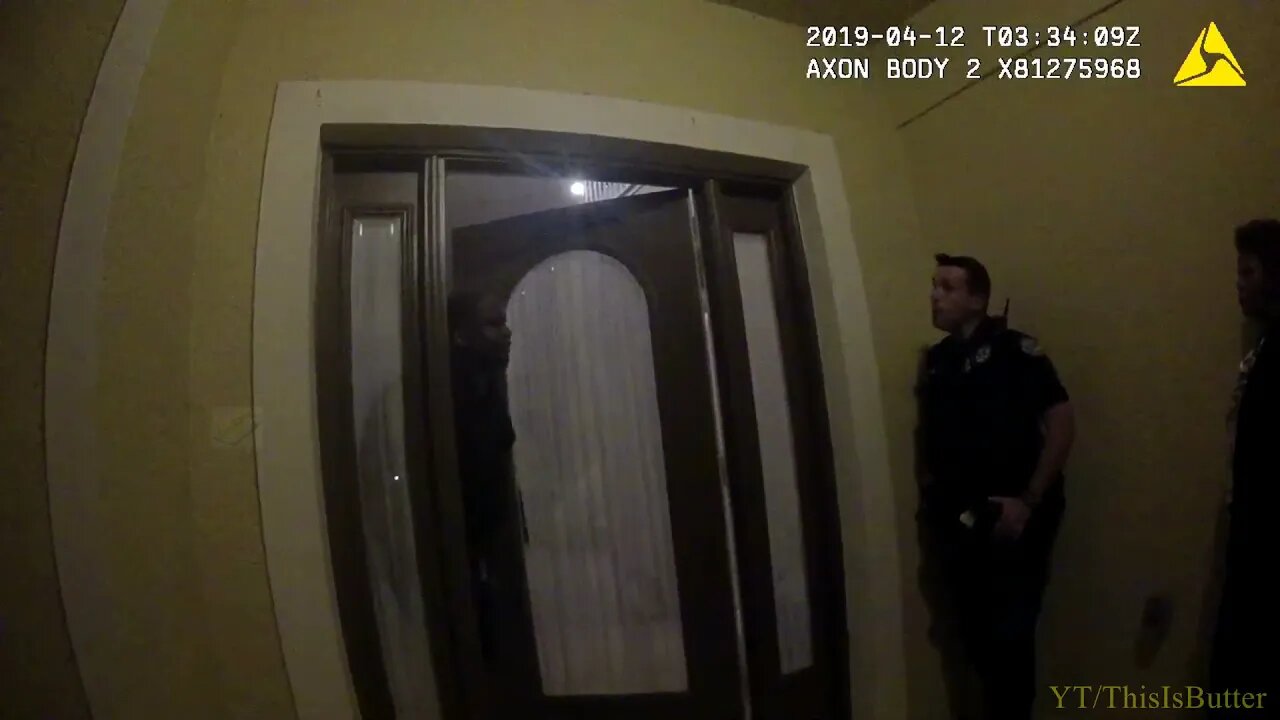Premium Only Content

Family of man who died after being tased by Ocoee, Windermere police files lawsuit
Keep me motivated by donating to https://paypal.me/thisisbutter
Viewer discretion is always advised when watching this video or any others videos. I do not take any responsibility to your trauma, psychological and/or mental harm.
I do not recommend anyone to attempt, act/reproduce, and/or create hate from what you see in this video or any other videos.
Enjoy.
--------------------
The family of a man who died after being tased by Ocoee police when he was going through a mental health crisis is suing the city and the Town of Windermere.
Jean “Samuel” Celestin, 33, became unresponsive after Ocoee and Windermere police officers used a Taser to subdue him while responding to a domestic violence call when he allegedly punched his mother and sister in the face on April 11, 2019.
A lawsuit filed April 5 in Orange County Circuit Court said family members called police in hopes they could remove him from the Ocoee home and possibly Baker Act him, which allows authorities to involuntary commit someone to a mental health facility.
“But from the moment the Defendant Officers arrived on scene and encountered Mr. Celestin, it was clear that they were not there to assist him. They were there to capture and subdue him,” the lawsuit said, adding they treated him like a “common criminal.”
The family’s New York-based attorney said Celestin’s death never should have occurred.
“Samuel Celestin is no longer with us for one reason and one reason only: because police officers treated a sick person in need of help like a dangerous criminal who had just committed a violent felony,” said Andrew G. Celli, Jr. “This case reflects policing at its worst.”
His mother told officers Celestin had been diagnosed with schizophrenia, paranoia, Bipolar disorder and anxiety, and previously had been involuntarily committed twice.
According to the Florida Department of Law Enforcement, after officers knocked on the door Celestin quickly shut the door and re-emerged with a knife.
Officer Christopher Bonner tried to use his Taser but it had no effect and Celestin began to tussle with the officers before being stunned again.
The lawsuit said Celestin sat down and told the officers “I’ll stop! I’ll stop! Please, sir! Arrest me!”
The officers told him “You are about to get shot” if he didn’t get on his stomach, the lawsuit said.
Celestin “panicked” and pushed his way out of the house before he ran across the street, where Windermere police Officer Griffin Hebel tackled Celestin to the ground and Ocoee Officer Dominic Chiuchiarelli stunned Celestin in the back “at one point for 20 continuous seconds,” the lawsuit says.
The lawsuit said the officers applied a hobble restraint, which ties together a person’s ankles and links them to their wrists, and left him on his stomach for a minute, “ignoring him as he lay dying in the grass.”
He became unresponsive and officers did CPR on him, but not mouth-to-mouth as they should have, the lawsuit alleges, before he was taken to a hospital where he died.
An autopsy determined Celestin died from cardiac arrest caused by a lack of oxygen to the brain and death was classified as a homicide, the lawsuit said. The Orange-Osceola State Attorney’s Office, which declined to file criminal charges against the officers, said there was no evidence that the Taser caused his death nor did the officers seek “to cause injury or death.”
While the officers were cleared of criminal wrongdoing, the SAO noted the officers knew about Celestin’s mental health issues.
“We are mindful of the fact that police officers have a difficult job, and that their actions during rapidly evolving events are often harshly and unfairly judged,” wrote Linda Drane Burdick, assistant state attorney in a letter to the police departments last fall. “We also are aware that many first responders may not have sufficient training in responding to situations involving people with mental illness in acute distress.”
Since Celestin’s mother told 911 dispatchers that her son was going through a mental health crisis, they should have sent specially trained officers who know how to deal with those situations, the lawsuit argued. Instead, they sent patrol officers who were untrained in crisis intervention and were sarcastic in their dealing with Celestin.
“This deviation from standard mental health intervention practices compounded Mr. Celestin’s confusion and paranoia,” the lawsuit said. “Such conduct is more than juvenile or unprofessional; it is dangerous, especially in dealing with a person who may have trouble understanding commands or distinguishing between reality and fantasy.”
The lawsuit stated Celestin was the son of a physician who was a “star pupil” and member of his high school basketball team before he developed mental health problems at age 17.
“Although struggles with mental illness caused Mr. Celestin to withdraw from many of his social relationships, he remained close with his siblings and was happiest at family gatherings”
-
 3:01:51
3:01:51
Right Side Broadcasting Network
11 hours agoWATCH: NASA’s SpaceX Crew-10 Launch
105K42 -
 2:06:17
2:06:17
Glenn Greenwald
10 hours agoJudge Orders Hearing on Columbia Student Deportation Case; Is the Ukraine Ceasefire Plan Serious? Trump Attacks Thomas Massie for His Budget Vote | SYSTEM UPDATE #422
120K167 -
 47:16
47:16
BonginoReport
12 hours agoTrump-Elon Bromance Triggers The Libs (Ep.03) - 03/12/2025
153K279 -
 4:03:41
4:03:41
Barry Cunningham
13 hours agoTRUMP DAILY BRIEFING: PRESIDENT TRUMP PRESS CONFERENCE | DEMOCRATS IN PANIC!
101K97 -
 1:56:30
1:56:30
Melonie Mac
11 hours agoGo Boom Live Ep 40!
57.2K8 -
 1:58:30
1:58:30
Kim Iversen
11 hours agoDOGE, Trump, Aliens and Remote Viewing: A Deep Dive into the Unknown
73K72 -
 1:20:08
1:20:08
Redacted News
12 hours agoPutin smells a TRAP as Ukraine agrees to Trump's U.S. ceasefire plan | Redacted w Clayton Morris
182K179 -
 51:59
51:59
Candace Show Podcast
13 hours agoMahmoud Khalil’s Detainment: Fighting Terrorism Or Speech? | Candace Ep 158
133K465 -
 7:43:31
7:43:31
Dr Disrespect
17 hours ago🔴LIVE - DR DISRESPECT - PUBG - PRO TACTICALLY WINNING
179K16 -
 1:02:40
1:02:40
In The Litter Box w/ Jewels & Catturd
1 day agoUSAID to Staff: Shred and Burn | In the Litter Box w/ Jewels & Catturd – Ep. 760 – 3/12/2025
98.5K39